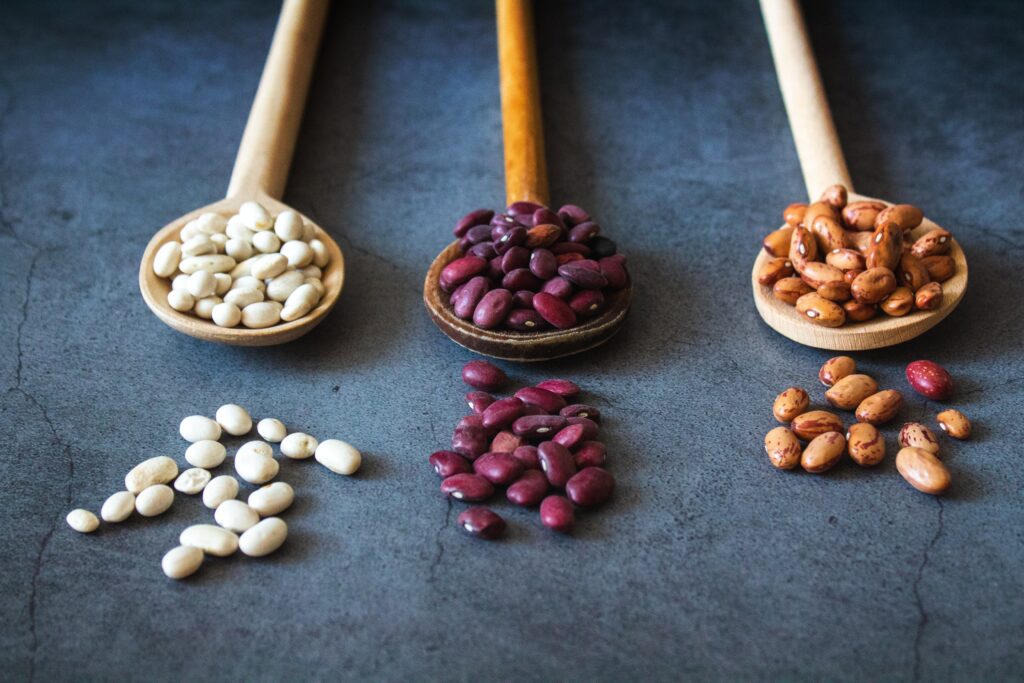Plums are a type of fruit that belongs to the Prunus genus. They are drupe fruits that have a central stone surrounded by juicy flesh. Plums typically have smooth skin ranging in colour from deep purple to red, yellow, or green, depending on the variety. Plums are sweet with juicy flavour.
A delicious and nutritious fruit that offers several plum benefits. They are rich in vitamins, minerals, and fibre, making them a great addition to a healthy diet.
Plums are high in antioxidants, which may help protect against chronic conditions like cancer, diabetes, and heart disease. Overall, plums are a tasty and healthy fruit that can be enjoyed in a variety of ways.
Table of Contents
Nutritional Value of Plums
Plums are nutritious fruits loaded with many essential nutrients. The nutritional value of plums per 100 grams varies slightly depending on the variety. These essential nutrients have many plum benefits.
- Calories: 46 kcal
- Carbs: 11.4 g
- Protein: 0.7 g
- Sugars: 10 g
- Fiber: 1.4 g
Vitamins:
- Vitamin C: 9.5 mg
- Vitamin K: 60 mcg
- Vitamin A: 345 µg
- Vitamin E: 0.7 mg
Minerals:
- Potassium: 104 mg
- Copper: 0.038 mg
- Manganese: 0.034 mg
- Iron: 0.11 mg
- Magnesium: 4.62 mg
- Phosphorus: 11 mg
- Calcium: 6 mg
Get More Bang for Your Buck: Exploring the World of Plum Benefits
Plum benefits due to their nutritional content and bioactive compounds. Incorporating plums into your diet as part of a balanced and varied eating plan can contribute to overall health and well-being. Here are some of the potential benefits of including plums in your diet:
Rich in Antioxidants:

Plums contain various antioxidants, including phenolic compounds, flavonoids, and vitamin C, which help neutralize harmful free radicals in the body and reduce oxidative stress. These antioxidants improve overall health and may reduce the risk of chronic diseases.
Antioxidants are essential for health because they help neutralize harmful free radicals in the body. Free radicals are unstable molecules that can cause oxidative damage to cells and contribute to the development of chronic diseases such as cancer, cardiovascular diseases, and neurodegenerative disorders. These are some of the effective plum benefits.
Improve Digestive Health:

Plums are rich in dietary fibre, both soluble and insoluble. Soluble fibre absorbs water and forms a gel-like substance in the digestive tract, which helps soften stools and promote regular bowel movements. Insoluble fibre adds bulk to the stool, aiding in its passage through the digestive system. Consuming an adequate amount of fibre from sources like plum benefits by preventing constipation and promoting overall digestive regularity.
Plums contain compounds such as sorbitol and isatin, which have natural laxative effects. Sorbitol is a sugar alcohol that draws water into the colon, softening stools and promoting bowel movements. Isatin acts as a mild stimulant on the colon muscles, helping to facilitate the movement of waste through the intestines. These natural laxative properties of plum benefits alleviate constipation and improve overall bowel function.
Incorporating plums into your diet as part of a balanced and varied eating plan can help support digestive health.
Support Heart Health:

Plums are packed with antioxidants, including phenolic compounds like anthocyanins and flavonoids, as well as vitamin C. These antioxidants help reduce oxidative stress and inflammation in the body, which are associated with the development of cardiovascular diseases.
The soluble fibre found in plum benefits helps lower LDL (bad) cholesterol levels in the blood. Soluble fibre binds to cholesterol particles in the digestive tract, preventing their absorption into the bloodstream and promoting their excretion from the body. By lowering LDL cholesterol levels, plums can help reduce the risk of atherosclerosis and cardiovascular disease.
The potassium content in plum benefits regulate blood pressure and maintain heart health. Potassium is essential for the proper heart muscle function.
Good for Bone Health:

Plums are a good source of vitamin K that plays a crucial role in bone metabolism by aiding in the formation of osteocalcin, a protein required for bone mineralization. Adequate intake of vitamin K is associated with improved bone density and reduced risk of fractures.
While plums are not exceptionally high in calcium, they do contain small amounts of calcium, magnesium, and phosphorus, which are essential minerals for bone health. Calcium is the primary mineral found in bones and is necessary for their structure and strength. Magnesium and phosphorus also play important roles in bone formation and maintenance.
Plums have alkalizing properties, meaning they can help maintain the body’s pH balance. A diet high in acidic foods can lead to calcium loss from the bones as the body attempts to neutralize acidity. Consuming alkalizing foods like plum benefits may help preserve bone density by reducing the need for calcium mobilization from the bones.
Help in Weight Management:

Plums are relatively low in calories. This makes them a satisfying snack option for those looking to manage their weight without consuming excess calories. Plums are a good source of dietary fibre, with approximately 1.4 grams per 100 grams. Fibre helps promote feelings of fullness and satiety, which can reduce overall calorie intake and prevent overeating.
Including fibre-rich foods like plums in your diet can help you feel more satisfied and less likely to reach for unhealthy snacks between meals. Plums have a high water content, which can help keep you hydrated and feeling full. Plum benefits help you stay hydrated is important for overall health and can also help control appetite and prevent overeating.
Enhance Skin Health:

Plums are rich in antioxidants, including vitamin C and various phenolic compounds like anthocyanins. These antioxidants help protect the skin from oxidative stress caused by environmental factors such as UV radiation, pollution, and toxins. By neutralizing free radicals, antioxidants can help prevent premature ageing, reduce the appearance of wrinkles, and promote overall skin health.
Vitamin C, found abundantly in plums, is essential for collagen synthesis in the skin. Collagen is a protein that provides structure and elasticity to the skin, helping it appear firm, smooth, and youthful. Consuming vitamin C-rich foods like plums benefits can support collagen production and maintain skin elasticity.
Plum benefits due to its high water content, which helps keep the skin hydrated and moisturized from the inside out. Proper hydration is essential for maintaining skin health and preventing dryness, flakiness, and dullness. Including hydrating foods like plums in your diet can contribute to overall skin hydration.
Boost Immune System:

Plums are a good source of vitamin C, which is known for its immune-boosting properties. Vitamin C helps stimulate the production and function of white blood cells, which are essential for fighting off infections and foreign pathogens. Consuming foods rich in vitamin C, such as plums, can help strengthen the immune system and reduce the severity and duration of colds, flu, and other infections.
Plums contain various antioxidants, including phenolic compounds like anthocyanins and flavonoids. These antioxidants help neutralize harmful free radicals in the body, which can cause oxidative stress and weaken the immune system. By reducing oxidative stress and inflammation, antioxidants support immune function and help protect against infections and diseases. Eating plum benefits in boosting your immune system.
Regulate Blood Pressure:

Plums contain potassium, a mineral that plays a key role in regulating blood pressure. Potassium helps counterbalance the effects of sodium in the body, which can help lower blood pressure levels. By promoting vasodilation (relaxation of blood vessels), potassium helps reduce pressure on the arterial walls, leading to lower blood pressure readings.
Plums are a good source of dietary fibre, including soluble fibre. Soluble fibre has been linked to lower blood pressure levels. It can help reduce cholesterol levels and improve overall heart health, which indirectly contributes to blood pressure regulation.
Plums are rich in antioxidants, such as vitamin C and various phenolic compounds like anthocyanins and flavonoids. Antioxidants help reduce oxidative stress and inflammation in the body, which are risk factors for hypertension and cardiovascular disease. By protecting against oxidative damage to blood vessels and improving endothelial function, antioxidants in plum benefits help regulate blood pressure.
Improve Eye Health:

Plums are a good source of vitamin A, which is essential for maintaining healthy vision. Vitamin A plays a crucial role in the synthesis of rhodopsin, a pigment found in the retina that helps with low-light vision. Adequate intake of vitamin A can help prevent night blindness and support overall eye function.
Plums are rich in antioxidants, including vitamin C and various phenolic compounds like anthocyanins and flavonoids. These antioxidants help protect the eyes from oxidative stress caused by free radicals, ultraviolet (UV) radiation, and environmental pollutants. By reducing oxidative damage to the eyes, antioxidants in plum benefits help prevent age-related eye conditions such as macular degeneration and cataracts.
Dark-coloured plums, such as black and purple varieties, contain high levels of anthocyanins, which are potent antioxidants with anti-inflammatory properties. Anthocyanins have been shown to improve blood flow to the retina, enhance visual acuity, and protect against retinal damage. Regular consumption of anthocyanin-rich foods like plums may help maintain optimal eye health and function.
Improve Brain Health:

Plums are rich in antioxidants, including vitamin C and various phenolic compounds like anthocyanins and flavonoids. These antioxidants help protect brain cells from oxidative stress and inflammation, which are linked to age-related cognitive decline, neurodegenerative diseases such as Alzheimer’s and Parkinson’s, and other neurological disorders. By reducing oxidative damage to brain cells, antioxidants in plums may help support overall brain health and function.
Some research suggests that the antioxidants and phytonutrients found in plums may have anti-inflammatory effects on the brain. Chronic inflammation in the brain can contribute to the development and progression of neurodegenerative diseases and cognitive impairment. By reducing inflammation, plum benefits help protect against these conditions and support healthy brain ageing.
Plums contain polyphenols, a group of bioactive compounds with potential neuroprotective effects. Polyphenols have been shown to support brain function by enhancing cognitive performance, improving memory and learning, and protecting against age-related cognitive decline. Regular consumption of polyphenol-rich foods like plum benefits may help maintain cognitive function and prevent cognitive impairment.
Blood Sugar Control:

Plums have a relatively low glycemic index (GI), which means they cause a gradual and modest increase in blood sugar levels compared to high-GI foods. Foods with a lower GI can help prevent rapid spikes and crashes in blood sugar levels, promoting more stable energy levels and reducing the risk of insulin resistance and type 2 diabetes.
Plums are a good source of dietary fiber, including both soluble and insoluble fibre. Soluble fibre can slow down the absorption of sugar into the bloodstream, helping to prevent sudden spikes in blood glucose levels after meals.
Plums contain polyphenolic compounds such as anthocyanins and flavonoids, which have been shown to have potential anti-diabetic effects. Polyphenols may help improve insulin sensitivity, enhance glucose uptake by cells, and reduce inflammation, contributing to better blood sugar control. Consuming plum benefits in controlling blood sugar levels.
Final Words
Plums are packed with essential nutrients, including vitamins (such as vitamin C and vitamin K), minerals (like potassium and manganese), and dietary fibre. These nutrients support overall health and well-being. A great source of potassium, which may help lower blood pressure.
Plums have a low glycemic index, which means they can help regulate blood sugar levels and may be a good choice for people with diabetes. A natural laxative and plum benefits help promote digestive health.
Incorporating plums into a balanced diet can provide a range of health benefits, but it’s essential to consume them as part of a varied and nutrient-rich eating plan
A fitness blogger shares health and fitness tips that could help achieve your goals. A fitness enthusiast is addicted to staying fit and healthy.












